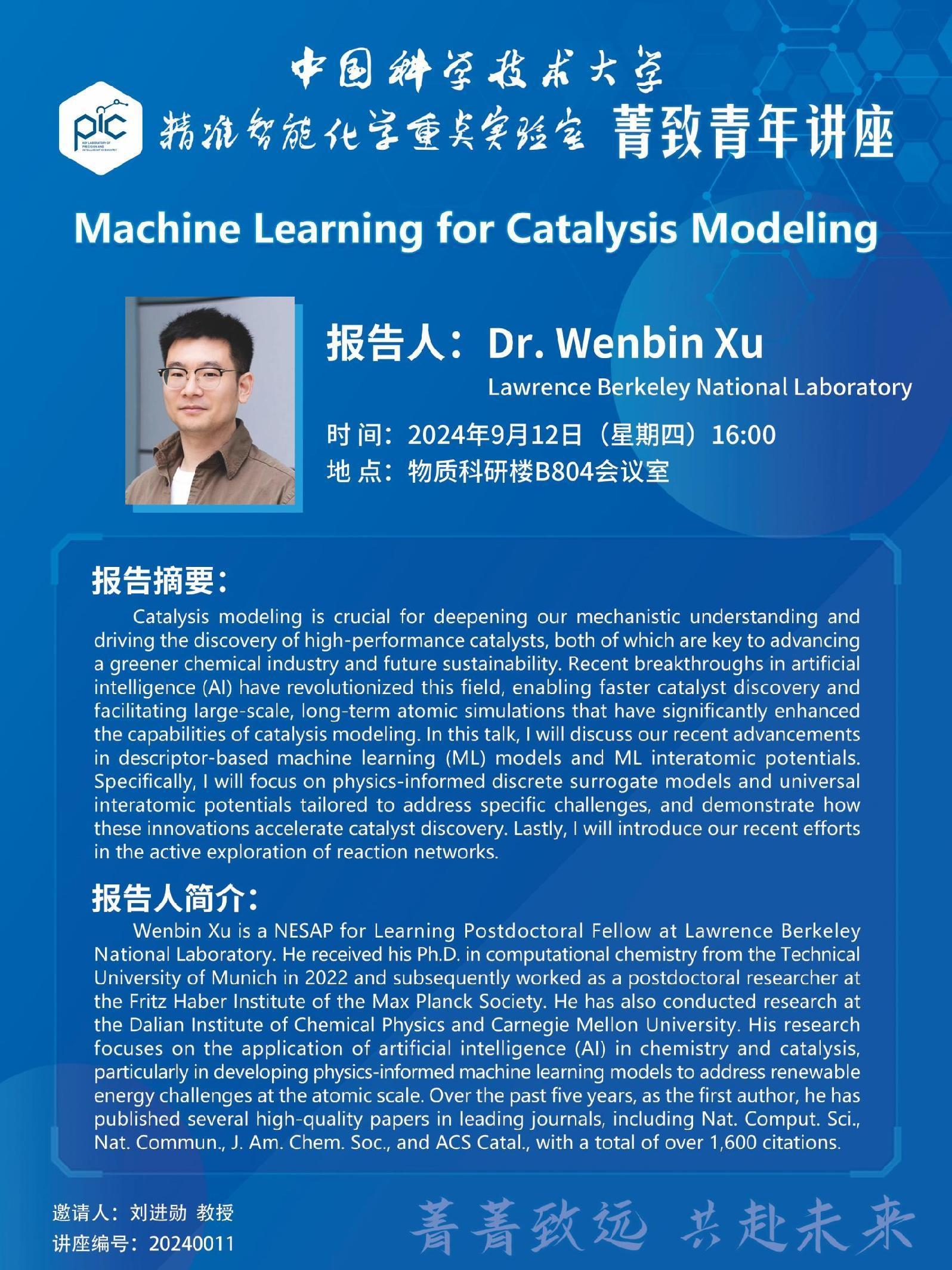报告题目 | Machine Learning for Catalysis Modeling |
报告人 | Dr. Wenbin Xu |
报告人单位 | Lawrence Berkeley National Laboratory |
报告时间 | 2024年9月12日(星期四)16:00 |
报告地点 | 物质科研楼B804会议室 |
主办单位 | 精准智能化学重点实验室 |
Catalysis modeling is crucial for deepening our mechanistic understanding and driving the discovery of high-performance catalysts, both of which are key to advancing a greener chemical industry and future sustainability. Recent breakthroughs in artificial intelligence (AI) have revolutionized this field, enabling faster catalyst discovery and facilitating large-scale, long-term atomic simulations that have significantly enhanced the capabilities of catalysis modeling. In this talk, I will discuss our recent advancements in descriptor-based machine learning (ML) models and ML interatomic potentials. Specifically, I will focus on physics-informed discrete surrogate models and universal interatomic potentials tailored to address specific challenges, and demonstrate how these innovations accelerate catalyst discovery. Lastly, I will introduce our recent efforts in the active exploration of reaction networks. | |
报告人简介 | Wenbin Xu is a NESAP for Learning Postdoctoral Fellow at Lawrence Berkeley National Laboratory. He received his Ph.D. in computational chemistry from the Technical University of Munich in 2022 and subsequently worked as a postdoctoral researcher at the Fritz Haber Institute of the Max Planck Society. He has also conducted research at the Dalian Institute of Chemical Physics and Carnegie Mellon University. His research focuses on the application of artificial intelligence (AI) in chemistry and catalysis, particularly in developing physics-informed machine learning models to address renewable energy challenges at the atomic scale. Over the past five years, as the first author, he has published several high-quality papers in leading journals, including Nat. Comput. Sci., Nat. Commun., J. Am. Chem. Soc., and ACS Catal., with a total of over 1,600 citations. |

